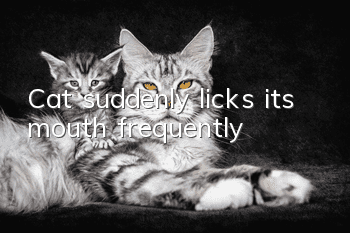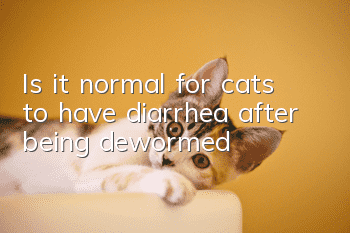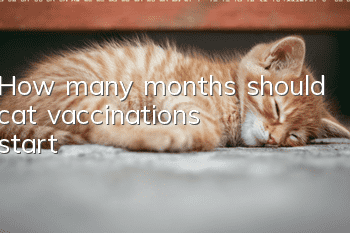Cat suddenly licks its mouth frequently

1. It is normal for a cat to lick its mouth after eating. It is normal for a cat to lick its mouth after eating food or drinking water.
2. There is bitter food in the cat’s mouth or the owner feeds medicine. Cats lick their mouths frequently to increase saliva secretion and use swallowing movements to eliminate the stimulation of bitter tastes as quickly as possible.
3. The cat has foreign body trauma, such as a fish bone piercing the mouth. The owner needs to open the cat's mouth to check whether there is any foreign matter stuck in the mouth. The cat will show interest in eating dry cat food or hard snacks, but will choose not to eat because of oral discomfort.
4. Cats have very sensitive personalities. When feeding, you need to be careful not to scare the cat. Excessive fright will cause the cat to have a series of stress reactions. After the stress reaction occurs, it will directly lead to a decrease in the cat's comprehensive resistance, and it may lick its mouth all the time. Symptoms such as vomiting, diarrhea, loss of appetite, and depression may occur.
5. Cats tend to lick their mouths when they feel nervous. When cats are nervous, they will make subconscious actions, such as going to a new environment, cutting their nails, etc., and licking their mouths to relieve tension, which is called the "replacement response."
6. Cats will feel uneasy due to changes in the environment and smell. If your cat keeps looking at one spot and licking its mouth, it may be caused by too much stress.
7. If a cat licks its mouth frequently, it may also be because of illness. Cats are prone to dental calculus and stomatitis, and in severe cases, ulcers may occur, making it difficult for cats to eat. Moreover, stomatitis can easily cause cats to have bad breath, change the taste of their saliva, and make them want to lick their mouths constantly to clean them.
8. Cats have nausea and want to vomit. It is more common in cats with gastrointestinal diseases. When a cat is dehydrated or feels nauseous, it is likely to lick its mouth non-stop, and may also be accompanied by drooling.
9. Cats have obsessive-compulsive disorder. If a cat licks too frequently, regardless of location or occasion, the cat may have obsessive-compulsive disorder.
10. There are wounds or bites on the body. After a cat licks the bite wound on its body, it will also prompt the cat to keep licking its mouth.
11. I smell something interesting. In daily life, the floors and tables are inevitably stained with chemicals, dirt, soap, etc., which produce some strange smells that attract cats to lick their mouths.
What to do if a cat licks its mouth and refuses to eat:
1. Pay attention to the stress response. Cats have a stress reaction when frightened, leading to symptoms such as not eating or drinking, frequent licking of the mouth, and lethargy. The owner needs to pay attention to whether the cat is vaccinated, changed the environment, bathed, frightened, etc. If so, the pet owner needs to slowly calm down the cat's mood. After the cat's stress reaction slowly subsides, it may become normal. Eat on the ground.
2. Choose suitable cat food and feed it regularly. If the owner finds that the cat is not eating because of the cat food, he can buy some better quality cat food for the cat.Feeding. If the cat eats, there is no need to worry too much. Owners also need to feed their cats at regular times. Uncontrolled feeding will cause the cat not to eat or drink at meal time.
3. Supplement beneficial bacteria and digestive enzymes. It is also possible that the cat does not eat because the body lacks beneficial bacteria and digestive enzymes, and the gastrointestinal tract does not perform peristalsis and digestion. Owners can feed cats beneficial bacteria and digestive enzymes to help cats promote digestion.
- What foods should not be given to cats at will?
- Cat urinates frequently and only urinates a little each time
- Several things you must pay attention to when raising a cat
- Is it normal for cats to lose appetite in summer? Cat owners don’t need to panic!
- Is it necessary to vaccinate a cat that is 6 months old?
- Is Monstera deliciosa poisonous to cats?
- Is it normal for a cat not to urinate for two days after arriving at a new home?
- Should I stop the new cat from getting angry at the old cat?
- Can I pet a cat while pregnant?
- Are chinchilla cats expensive? Why don’t many people keep chinchillas?



